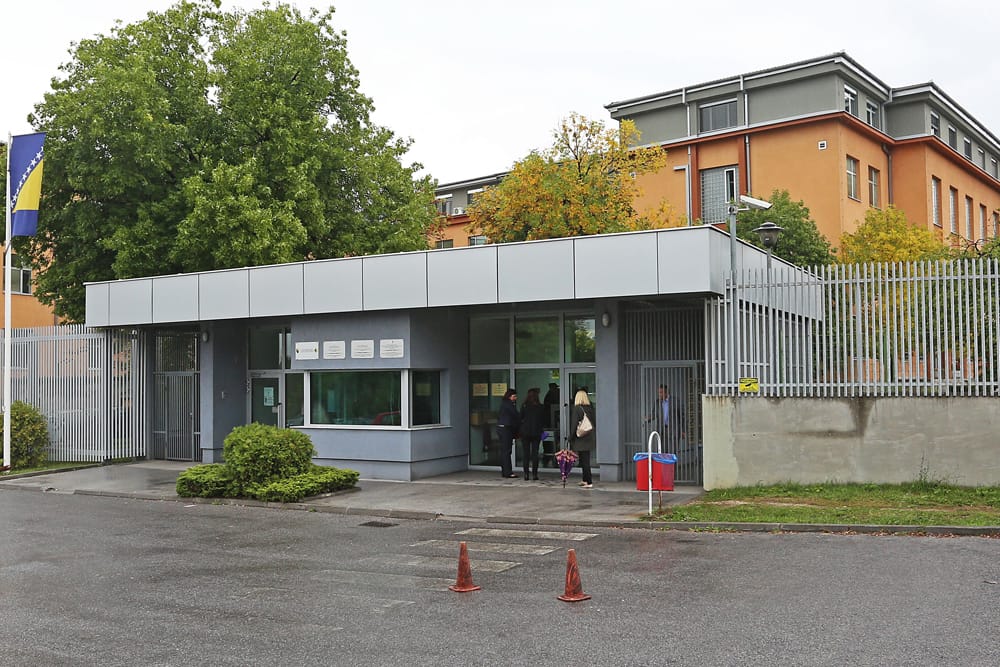Less than five months after British lawyer Paul Richard Garlick was sworn in as an international judge for the War Crime Chamber at the State Court, he has resigned from his two-year post for professional reasons.
The 53-year-old expert on extradition and money laundering said he could not continue to serve in Bosnia, where he specifically came to serve as a war crimes judge and then found himself reassigned to organized crime cases. Garlick said he was not even consulted about the change.
“I could handle organized crime cases in England,” he told the Center for Investigative Reporting in Sarajevo (CIN). Garlick said he was recruited as a war crimes judge and he gave up his life and his highly successful practice at home to serve in that area only.
On July 20 he turned in a letter of resignation to Court President Meddzidu Kreso, and flew to London. He had been assigned to head a panel of judges in the case of Dragana Čovića, the former member of the BiH presidency, starting in September.
The new chamber was supposed to start taking over responsibility for war crimes cases from the Bosnian War from the International Criminal Tribunal in The Hague (ICTY), last January. Now the chamber does not expect to begin prosecutions until the fall, which has left the chamber judges largely inactive, according to court officials. One of the delays was the difficulty in seating international judges, according to court observers. The final international judge was not sworn in until last May 5.
Garlick is the second international judge to bring attention to The State Court of BiH this summer. Rwanda Judge Gerald Gahima, currently away from Bosnia on a holiday, is the subject of an inquiry into his suitability to serve on the court after a CIN investigation raised questions about his financial dealings and professional behavior in Africa.
Garlick said he hoped his abrupt departure would not damage the credibility of the chamber or hamper the prosecution of war crimes cases.
“I am sure that the judges who remain in Sarajevo and the president of the court will make this project successful,” he said. “It deserves to be successful,” he added, citing the talent and integrity of his colleagues. He refused to comment on the Gahima investigation.
Garlick also refused to disclose any details of his letter to Kreso saying it was a personal correspondence with a colleague. He said he spoke about his departure with British ambassador Matthew Rycroft and briefly with OHR officials.
“I have sent the letter to the court’s president because of my respect for her. It contains private reasons which have nothing to do with the resignation. The letter is of private nature,” said Garlick.
Kreso said she was tired and would not talk to CIN Friday. Emir Salihović, a spokesperson of the British Embassy said he had no information on the exchange between Garlick and the ambassador. OHR officials refused all comment too.
Court officials and local judges were unaware that Garlick had resigned. He did say that he may return to conduct training sessions or do whatever court officials asked of him because of his continued belief in its mission.
But he said, after careful thought, and with awareness of the seriousness of the decision, he could not continue as a judge after his reassignment.
“It was not tenable,” he said, “meaning I could not continue.”
Garlick said he was treated completely professionally up to the point of being redesignated. After that his opinion of his treatment was obvious from the fact of his resignation, he said.
The reassignment was the direct result of a June 7 decision announced by High Representative Paddy Ashdown, that the war crime judges could be cross certified to handle cases involving financial crimes and corruption.
Garlick, who read law at Liverpool University, is a well-respected London attorney with offices outside renowned Old Bailey. His experience in international criminal justice is widely known and he has been quoted by journalists covering the recent terrorist bombings in London.







